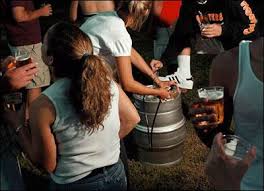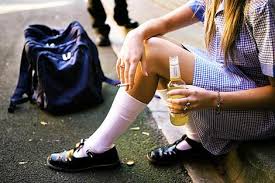Rehab Articles

1. One of the biggest keys to preventing teen alcohol abuse is open communication. Parents need to talk with teens about alcohol use and listen carefully. When parents keep communication open the teen is more likely to abstain from substance abuse including alcohol abuse. Teens need to know that as a parent you are always available and willing to listen.
2. Part of substance abuse prevention in adolescents is setting boundaries and laying down rules. Let your teens know that there are consequences if the rules are broken, and what these consequences are. Teens need parents, not adult friends or those who want to be buddies with their children.
3. The peer group that your teens associate with should be monitored, and any peers who seem to be a bad influence when it comes to substance abuse should be banned from your teen’s social circle. Peer pressure can cause teens to use alcohol or drugs if they do not have strong parental support, so make sure that the peer your teen has are a good influence.
4. Know where your teens are at all times to prevent teen alcohol abuse. Adolescents who are not closely monitored and supervised may engage in substance abuse when they think they will not get caught. Know who your teen is with and where they will be.
5. If the goal is substance abuse prevention then be a role model for teens. Households where parents drink or use drugs have a higher rate of teen substance abuse because teens emulate the behvior that they see in their parents.
Rehab Articles

binge drinking, teen alcohol abuse
Teen alcohol abuse, and binge drinking among all ages, are big problems but a new report by the American College of Emergency Physicians show that sending text messages to the individual after they have had an Emergency Room visit can be beneficial and help lower the risk of binge drinking and teen alcohol abuse. Researchers found that adolescents and young adults who were seen in the ER and who had a positive history for alcohol abuse were more than 50% less likely to engage in dangerous drinking when they received follow up text messages the next day.
According to University of Pittsburgh School of Medicine physician Dr. Brian Suffoletto “Each day in the U.S., more than 50,000 adults ages 18 to 24 visit ERs and up to half have hazardous alcohol use patterns. More than a third of them report alcohol abuse or dependence. The emergency department provides a unique setting to screen young adults for drinking problems and to engage with them via their preferred mode of communication to reduce future use.” Dr. Suffoletto went on to say “Illicit drugs and opiates grab all the headlines, but alcohol remains the fourth leading cause of preventable death in the U.S. If we can intervene in a meaningful way in the health and habits of people when they are young, we could make a real dent in that tragic statistic. Alcohol may bring them to the ER, but we can do our part to keep them from becoming repeat visitors.” The report and underlying study was published in the online version of the Annals of Emergency Medicine.
Rehab Articles

binge drinking, teen alcohol abuse
A new study shows that researchers may be able to successfully predict the risk of binge drinking for teens. This may help with identifying teen alcohol abuse early on and preventing complications. The study looked at factors that include brain structure, life experience, and individual personality. All of these factors are proven to have a strong link to teen alcohol abuse and binge drinking. The study used data from the IMAGEN project to develop a model that can include up to 40 various risk factors for substance abuse among teens. The lead author for the study, University College Dublin professor Dr. Robert Whelan, said “Our goal was to better understand the relative roles of brain structure and function, personality, environmental influences, and genetics in the development of adolescent abuse of alcohol. This multidimensional risk profile of genes, brain function, and environmental influences can help in the prediction of binge drinking at age 16 years.”
The study on teen alcohol abuse and binge drinking involved more than 2,000 14 year olds from several European countries including France, Germany, England, and Ireland. Professor Gunter Schumann, who is associated with the King’s College London and the Institute of Psychiatry and who is also the IMAGEN project Coordinator, stated “We aimed to develop a ‘gold standard’ model for predicting teenage behavior which can be used as a benchmark for the development of simpler, widely applicable prediction models.” Being able to predict the risk of teen alcohol abuse and binge drinking may be the first step to treatment that is effective.



